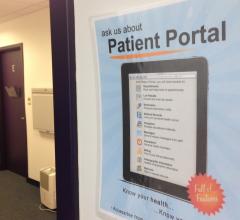
July 6, 2010 – The government’s certification program for health information technology (HIT) will continue to evolve over time, according to a review of the recently released final rule for the temporary certification program, released last week.
The temporary program to certify electronic health record technology went into effect on June 24, and it will be replaced by the permanent certification program as soon as Dec. 31, 2011. However, the analysis by the College of Health Information Management Executives (CHIME) indicates that certification criteria will change, necessitating the ongoing need to certify HIT products for the foreseeable future.
CHIME found that the recently released final rule suggests that electronic health records (EHR) will need to be certified on an ongoing basis, and that meaningful use criteria are likely to evolve over time.
To receive stimulus funds, eligible hospitals and providers that implement electronic health records must demonstrate that they are using them to improve care delivery and clinical results. The plan originally proposed by the Centers for Medicare & Medicaid Services (CMS) would require providers to give evidence that their systems are achieving certain standards to show they’re using EHRs in meaningful ways. The original plan anticipated that the measures for demonstrating meaningful use would get tougher every two years over the three stages of the program. Providers can enter the program at any time over the next four years by meeting Stage 1 meaningful use criteria.
While the industry is uncertain about the final shape of the meaningful use objectives that CMS will choose, the temporary certification final rule suggests that Stage 1 criteria could become tougher over time.
“Regardless of the year and meaningful use stage at which an eligible professional or eligible hospital enters the Medicare or Medicaid EHR Incentive Program, the certified EHR technology that they would need to use would have to include the capabilities necessary to meet the most current certification criteria,” the temporary certification rule notes.
CHIME’s reading of the rule suggests that, although Stage 1 criteria will be finalized soon, it is possible future rule-making could include updates to the Stage 1 criteria, said Pamela McNutt, senior vice president and CIO at Dallas-based Methodist Health System and chair of CHIME’s Policy Steering Committee.
However, the final rules for temporary certification do provide some relief because they don’t require recertification for HIT product updates and “fixes” that don’t adversely affect meaningful use criteria. However, a product may be certified if there are any concerns about changes in an application that could affect its ability to achieve meaningful use objectives.
Additionally, the authorized testing and certification bodies recognized by the Office of the National Coordinator for Healthcare IT (ONC-ATCBs) can not require that integrated bundled EHRs or EHR modules be certified to a higher set of standards than the certification criteria set by the ONC. CHIME views this clarification as a positive result of the commenting process that caused ONC to re-evaluate the proposed rule.
CHIME also positively views provisions in the final regulation that call for ONC-ATCBs to provide remote testing of applications. Additionally, the regulations don’t require that an application must be live at a customer’s site before it is tested, opening the way for testing of applications at vendors’ facilities.
While the final regulations reflected resolutions of many of CHIME’s concerns and clarifies certain issues, the organization still is concerned that a product’s certification can be revoked for some “Type 1” violations by an ONC-ATCB that would prompt questions about the integrity of the certification of those products. If a product loses certification, a healthcare organization would have 120 days to secure a certified product, either by the vendor having its product re-certified by a different ATCB or installing another certified product.
While the loss of a product’s certification is unlikely, any such occurrence will probably affect hundreds of provider organizations and could place them under extreme stress to resolve the issue quickly, CHIME said.


 June 14, 2024
June 14, 2024 









